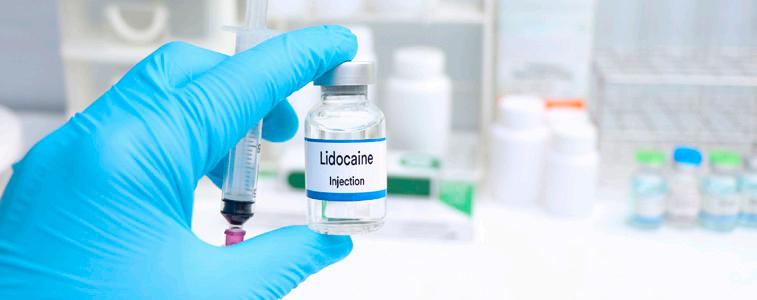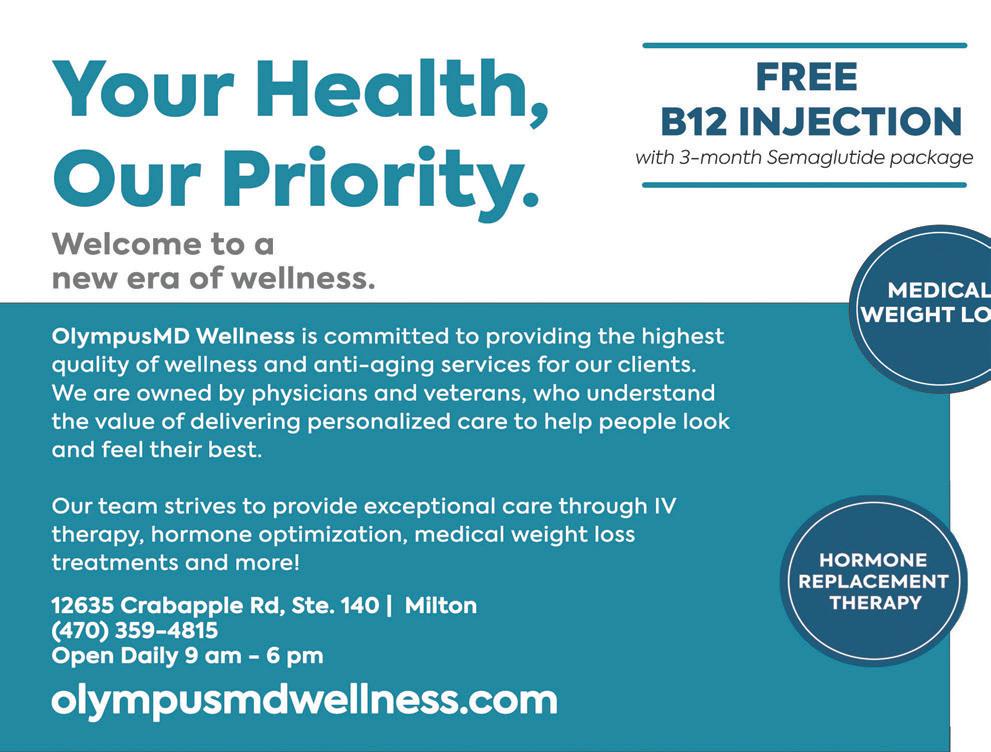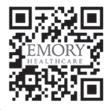




Dr. Brent Taylor is a Board-Certified Dermatologist, a Fellowship-Trained Mohs Surgeon, and is certified by the Board of Venous and Lymphatic Medicine in the field of Vein Care.
He is an expert in skin cancer and melanoma treatment, endovenous laser ablation, minimally invasive vein procedures and cosmetics procedures such as Botox and injectables.
Kathryn is a certified physician assistant with over 22 years experience as a Dermatology PA and cosmetic dermatology.
Her specialties include general dermatology such as acne, eczema, rashes, hair loss, full body skin exams, abnormal growths etc. Kathryn also specializes in cosmetic dermatology including lasers, injectables, micro-needling, PRP, facial peels, sclerotherapy for spider veins and at home skin care.



We always worry about the negative side-effects that a medicine might have. At the end of a pharmaceutical company’s commercials, an auctioneer very quickly states the twenty terrible things that might happen if you take the advertised medicine. Side effects range from your ear falling off when you sneeze to the belief that you are Elvis. Side-effects make almost any medicine sound scary. But occasionally, a positive side effect emerges. Sometimes, we discover something wonderful about a medicine that is wholly unexpected. Examples of positive side-effects are not hard to find. The medicine finasteride was first being used to help decrease the size of the prostate in men who were having difficulty urinating. An unexpected positive side-effect was discovered when it was noticed that many of the men were re-growing their scalp hair. With finasteride, male pattern baldness was often partially reversed or stopped in its tracks.
One of the most recent medications discovered to have a possible positive side effect is lidocaine, which has been around since 1943. Lidocaine is an injectable anesthetic. We use lidocaine for skin biopsies, excisions, Mohs surgeries and countless other procedures every day in the dermatology office. Amazingly, lidocaine may be more than an anesthetic. It may also have anti-cancer effects.
A team of surgeons in India operating on breast cancer divided patients into two groups. One group had standard breast cancer surgery. The other group received a lidocaine injection around the tumor 7-10 minutes prior to surgery. During the 5 years after surgery, the group that received the lidocaine injection had an 8.5% rate of the cancer recurring (popping up again) at a distant site versus an 11.6% rate of distant recurrence in the surgeryonly (no lidocaine) group. The study has some limitations including not being a double-blind trial and being a single-
center study, but it is intriguing enough to warrant further investigation. The authors reported that injecting lidocaine around breast cancer before removing it increased survival in their study.
What made the surgeons perform this study in the first place? Why lidocaine? Over the last few years, researchers have discovered that electrical gradients maintained across the membranes of cancer cells are important to their ability to metastasize or spread. Our cells have pumps in them called “ion channels.” They allow certain ions to pass across the cell membrane. The resulting ion concentration gradient creates an electrical charge across a cell. This gradient affects the way other proteins in the cell function. Importantly, some of the proteins affected by the charge across a cell membrane are important for healthy cells’ growth and development as well as for cancers’ ability to grow and spread.
Lidocaine works by blocking sodium channels in cell membranes. Disrupting the electric charge across a cancer cell membrane was suspected to have the potential to weaken the cancer itself. Preclinical studies supported this hypothesis, and the breast cancer surgeons took the next step of performing a trial with breast cancer patients and peritumoral lidocaine injections.
I don’t know if breast cancer surgeons in the United States consider these results valid, are awaiting confirmatory studies or are already injecting lidocaine. However, in dermatology, these results are exciting because, for now, we do not need to change anything that we are already doing. Every day that I perform Mohs surgery, we inject the area around a tumor with lidocaine prior to surgically removing the cancer. If lidocaine is more than an anesthetic, then our patients are likely already benefiting from any anti-cancer properties that lidocaine has.
Mohs surgery is the gold standard for treating most skin cancers and has a cure rate that is usually at or above 99%. Perhaps lidocaine is one of the secrets to this success.

Brought to you by – Comprehensive Internal Medicine
What are allergies?
Allergies are your body’s reaction to a foreign particle, usually a protein. These proteins can come from pet dander, molds, pollens, or from trees and grasses. If you develop an allergy to a particular protein, your body’s defense system (immune system) reacts to it and the allergic reaction creates allergy symptoms.
What is an allergic reaction?
An allergic reaction is the way your body responds to an allergen, usually a protein.
You may feel itchy, watery eyes, a runny nose, sinus or ear fullness, a hoarse voice, a scratchy throat, or trouble breathing. You may even develop a skin rash.
These symptoms can be treated with over the counter or prescription allergy medication or immunotherapy (allergy shots) can be tailored specifically for you.
What is allergy testing?
To perform allergy testing, small pinpricks or scratches are made in the

skin and a very small amount of allergen is placed to test your body’s response. If you react to the allergen, we have identified a trigger that is causing your allergy symptoms.
What is immunotherapy?
Immunotherapy is a treatment used to desensitize your body to the allergy trigger.
In this treatment, the results of your allergy testing are used to create a very personalized formula of medicine that is used to slowly treat your immune system in a way that stops reacting to your allergy trigger. Immunotherapy medicine is given by injection (allergy shots) and is administered twice weekly. The first injection is given in the doctor’s office. Comprehensive Internal Medicine uses an advanced formulation and instruction that allows you to then give the injections at home. This saves the twice-weekly visits to the doctor’s office. You return to Comprehensive Internal Medicine every 6 weeks to progress the therapy and at the end of one year, allergy testing is repeated. Often, a second year of treatment is advised, following which, most allergies are cured.

Dr. Obiora has a special interest in managing medical issues such as diabetes, high blood pressure and high cholesterol. He also specializes in diabetes prevention and weight loss.
In addition, he brings expertise in allergy treatment and managing allergic rhinitis, sinusitis and asthma, and can schedule allergy testing to determine the best way to treat allergy symptoms.

Dr. Bozof specializes is men’s health, cardiovascular risk assessment and the evaluation and management of high blood pressure, high cholesterol and diabetes. He also provides evaluation for testosterone levels and treatment as needed.
In addition, he brings expertise in allergy treatment and managing allergic rhinitis, sinusitis and asthma, and can schedule allergy testing to determine the best way to treat allergy symptoms.

Alexis brings years of nursing experience to Comprehensive Internal Medicine and has expertise in the care of Allergy and Asthma patients. She prides herself in forming lasting relationships with her patients, while also providing compassionate and individualized care. She has a special interest in the treatment of sinusitis, chronic bronchitis, asthma and allergies.
In addition, she brings expertise in allergy treatment and managing allergic rhinitis, sinusitis and asthma, and can schedule allergy testing to determine the best way to treat allergy symptoms.



At Roswell Dental Care, we take pride in our ability to educate our patients about their oral health. One question we frequently hear from our patients, “Why do I get so many cavities? I brush my teeth every day!” We understand the frustration that comes from putting the work in to maintain your teeth and still ending up with cavities, we are here to help break those reasons down for you.
4. Your flossing habits: Flossing removes plaque and bacteria from the sides of your teeth, so not flossing on a consistent basis increases your risk of developing cavities between your teeth.
• Spa-Like Relaxing Atmosphere
• Free Nitrous Oxide and Oral Conscious Sedation
• Cone Beam 3D Radiography
Digital Scanner – No More Gooey Impressions
• Botox and Dermal Filler
Master Injector
• Platinum Invisalign Provider


1. How deep your grooves are: How your teeth are shaped, including the grooves of your teeth, are inherited. These grooves are too small for your toothbrush bristles to get in and clean properly. Some teeth have deeper grooves, which increases the risk of biting surface cavities. We can prevent these types by placing sealants (plastic) over the grooves of the teeth.
2. Your oral bacteria: Did you know, you inherit the genetic layout of your oral bacteria from your mom? The types of oral bacteria can impact your oral health, including your likelihood of cavities and developing periodontal disease. Staying on a cleaning schedule with your dental hygienist will help reduce the number of bacteria you have in your mouth.
3. Your frequency of sugar intake: Your habits also play a significant role in your oral health. Your frequency of sugar intake has a direct tie into the frequency of the occurrence of cavities. The more times you consume sugar, the more opportunities for cavities to take hold.
5. Your medications: When you eat or drink anything other than water, the pH of your mouth becomes acidic. Saliva’s job is to neutralize the acidic environment. Some medications cause xerostomia (or dry mouth). If your saliva is reduced or becomes thicker, your teeth have an increased risk of developing decay, especially along the gumline. Products containing xylitol are “mouth wetters,” and xylitol prevents bacteria from adhering to tooth structure, helping to prevent the effects of a dry mouth.
The above reasons are just a few of the many complex factors that go into why cavities develop. As dental professionals, we strive to keep our patients educated in their oral hygiene. Good or bad oral hygiene plays a role in overall health, and we are here to get your oral health in excellent condition so that your overall health can be too.
Dr. Hood at Roswell Dental Care understands and customizes treatment for each person. We assure you will feel confident in the solution you choose before beginning any treatment. For enhanced comfort, we offer FREE nitrous oxide. You can rest assured that your experience will be positive, relaxing, and rewarding on many levels. Give our office a call at 770.998.6736, or visit us at www.roswelldentalcare. com, to begin your journey to happy and pain-free oral healthcare!
Brought to you by – OlympusMD
When it comes to taking charge of your health, there’s no such thing as a one-size-fits-all approach. Especially in integrated wellness, where personalized care is the key to unlocking your body’s full potential, understanding your unique physiology becomes essential. This is where lab results come into play—providing an in-depth look at your body’s inner workings and guiding you toward the best IV therapy, peptide therapy, nutraceuticals, or gut health solutions for your needs. Whether you’re new to these advanced wellness options or looking to optimize your current routine, lab testing acts as your personalized roadmap to better health.
Why labs are essential for personalized wellness
Your health is unique, and so are your body’s needs. Reviewing labs consists of analyzing specific biomarkers that provide insight into your overall health and highlight areas for improvement. By understanding these markers, healthcare providers
can tailor treatments to your body’s specific requirements, ensuring you’re not wasting time or effort on generic solutions that may not work for you. When you have this information in hand, you can make informed decisions about your integrated wellness plan, knowing that every treatment or supplement you choose is backed by science.
How labs determine the best wellness solutions
IV Therapy is a direct and effective way to replenish essential vitamins, minerals, and hydration. But not all IV treatments are created equal. By obtaining labs, your healthcare provider can pinpoint what your body is lacking— whether it’s vitamin C, magnesium, or a combination of nutrients—and create a thoughtfully curated IV therapy plan. This precision ensures you receive exactly what your body needs, whether you’re addressing chronic fatigue, boosting immunity, or recovering from a tough workout. Peptides, small chains of amino acids, are increasingly popular for enhancing cellular function, metabolism,

and tissue repair. However, their effectiveness hinges on understanding your body’s baseline. For example, labs can determine your growth hormone levels, insulin sensitivity, or even inflammatory markers. This data allows experts to select the best peptides, such as CJC-1295 for growth hormone optimization or BPC-157 for injury recovery and gut health, tailored to your specific needs.
Nutraceuticals combine nutrition

Crabapple Rd., Ste. 140 | Milton (470) 359-4815
Mon. – Fri. 9 am – 6 pm Sat. - Sun. 9 am – 4 pm

and pharmaceuticals—think vitamins, minerals, and plant-based compounds tailored to address specific health goals. Without labs, selecting nutraceuticals can feel like guesswork. With lab results, you can cut through the noise and focus only on what your body truly needs. For instance, labs may reveal that you’re low in omega-3 fatty acids, prompting the inclusion of a high-quality fish oil supplement in your routine. Gut Health is often considered the gateway to overall health, influencing everything from immunity to mental well-being. Labs allow practitioners to look deep into your gut health using tools like microbiome mapping, stool analysis, and inflammation markers. This information forms the foundation for a tailored gut health plan, addressing problems like leaky gut, food intolerances, or microbiome imbalances.
Curious about how lab results could transform your health? Connect with a wellness expert today to explore your options. Start uncovering the insights hidden in your health profile and take the first step toward a more vibrant life. Contact OlympusmdWellness.com today.




Brought to you by - Dr. Gregory J. Coffman, Wellstar general surgeon
In the ever-evolving world of medicine, the most groundbreaking advancement in surgery is robotic surgery. The robotic platforms have transformed the way surgeries are performed, offering both patients and doctors a host of remarkable benefits. From enhanced precision to faster recovery times, robotic surgery is quickly becoming a preferred method in many medical fields.
Robotic surgery involves the use of robotic systems controlled by highly skilled surgeons to perform minimally invasive procedures. These systems are equipped with high-definition 3D cameras and specialized tools that enable surgeons to operate with greater accuracy, even in the most delicate areas of the body. The most common adoption of the robotic platform is in
the fields of urology, gynecology and general surgery.
Traditional surgery often involves large incisions, leading to longer recovery times, more pain and a greater risk of infection. This pain and prolonged recovery were a part of surgery for over 100 years. Robotic surgery, on the other hand, typically requires only small incisions, which results in less tissue damage. This means patients experience less pain, a lower risk of infection and a quicker recovery. In many cases, patients can return to their normal activities in a fraction of the time it would take after traditional surgery.
The smaller incisions associated with robotic surgery not only led to faster healing but also result in minimal scarring. Many patients are amazed at how little visible evidence of the surgery remains after the procedure, with some reporting scars that are nearly invisible. This cosmetic benefit is especially important for patients undergoing elective surgeries or
procedures in visible areas of the body.
Although less pain, faster recovery and smaller scars are important to patients, the biggest advantage of robotic surgery is the precision it offers. The robotic instruments used in surgery are incredibly small and can move in ways that are impossible for the human hand to replicate. Surgeons can work with unmatched precision because of advancements in 3D imaging, smaller instruments and real-time feedback reducing the risk of human error. This is especially important for complex or intricate procedures, where even a slight mistake could have significant consequences. Because robotic surgery allows for such precision and minimizes human error, the risk of complications is significantly lower compared to traditional surgery. Surgeons can operate in tighter, more difficult spaces, avoiding critical structures and reducing the chances of accidental injury. This leads to better outcomes and higher safety for patients.
Shorter hospital stays
Robotic surgery’s minimally invasive nature means that patients often experience less trauma during the procedure and can move on with their lives much faster. As a result, many patients can go home the same day or the day after surgery, instead of staying in the hospital for several days. This reduces the risk of hospitalacquired infections and allows patients to get back to their lives more quickly.
Why choose robotic surgery?
No one wants to have surgery. But, if a surgery is needed, robotic surgery offers the peace of mind that comes with knowing you are receiving the most advanced, precise and minimally invasive treatment available. Ask your physician if you are a candidate for robotic surgery.
Wellstar North Fulton Medical Center has robotic surgeons in several specialties. We have seen the benefits for our patients and our loved ones firsthand. To schedule an appointment with Dr. Gregory Coffman in Roswell or Alpharetta, call (470) 956-4560.

At Wellstar North Fulton Medical Center, you’ll find advanced surgical treatment, including minimally invasive, laparoscopic and robotic surgery—all right here in your community. Our surgical team is ready to care for all your general surgery needs, including appendicitis, hernias, intestinal issues, traumatic injuries and gallbladder concerns.
Robotic and minimally invasive techniques allow physicians to do complex surgeries with smaller incisions, less pain and less risk of infection. That means less recovery time and a shorter hospital stay for patients, so you can get back to doing what you love. wellstar.org/northfulton






In order to understand a youthful smile, one needs to know the look of aging teeth. An aging smile can occur as a person gets older, however, they can be influenced by various factors such as oral habits, lifestyle choices, and dental hygiene care…at any age!
Some of the most common features of an aging smile are:
1. Teeth yellowing: Over time, and many coffee/tea, chocolate, wine and tobacco indulgences later, teeth can lose their natural brightness and present more yellow.
2. Tooth wear and tear: Years of grinding, taking out one’s stress on one’s teeth, and misaligned teeth can contribute to excessive and uneven tooth wear and flatter and shorter surfaces.
3. Gum recession: gum recession exposes the darker root surfaces and makes teeth look longer and less esthetic.
4. Tooth loss: missing teeth can impact the appearance of one’s smile and contribute to decreased lip and cheek support and fullness causing facial changes.
5. Teeth crowding: As we age our teeth have a tendency to shift in a forward direction, causing the front teeth to become more crowded.
To maintain a youthful smile here are a few tips:
1. Avoid staining: Avoid tobacco and limit stain causing and enamel eroding acidic foods and drinks.
2. Whitening: professional dental whitening can remove most stains and bring back the luster and brightness to one’s teeth.
3. Resin bonding: Tooth colored fillings do a beautiful job of masking exposed root surfaces and restoring the beautiful shape of the teeth, and thus enhance one’s smile.
4. Tooth replacement: In today’s world, replacing a tooth with implant therapy is the gold standard of dentistry and has long lasting benefits in maintaining the longevity of one’s dentition.
5. Orthodontics: Crooked and misaligned teeth can be corrected using braces or aligners and immediately restore the “wellness” of the smile. It is amazing what a straight smile does to restore youthfulness and confidence! 6. Occlusal guard: A bite guard can shield the teeth from the harmful effects of clenching and grinding.
Maintaining a youthful smile is a lifelong commitment to YOURSELF! Regularly consulting with a good dentist who is committed to your optimal dental health and smile will help ensure personalized advice and appropriate care and methods keep your smile healthy and youthful.
Call us for a free consultation (upon mention of this article) on how we can help you rejuvenate your smile!

Brought to you byHaley Aguero M.A., Licensed Associate Professional Counselor at Summit Counseling Center
“You can discover more about a person in an hour of play than in a year of conversation.”
-Plato
Child-centered play therapy (CCPT) is the oldest and most researched therapy for children. Children are at a different developmental age than adults and do not have the cognitive ability to discuss their feelings like adults do. Play is the natural language of children; therefore, play therapy does not force the child to come up to the level of communication of the therapist but invites children to express themselves and explore their feelings through a medium that is optimal for them. Play therapy hopes to meet children where they are, allowing them to express thoughts and feelings that may be frightening or that they cannot verbalize. Gary Landreth states in his book, Play Therapy: The Art of the Relationship, “Children express themselves more fully and more directly through self-initiated, spontaneous plan than they do verbally because they are more comfortable with play.”
CCPT is rooted in person-centered therapy and follows certain conditions that are required for effective personcentered therapy. If all conditions are met, therapy will result in positive change for the child.
1. The therapist experiences unconditional positive regard for the child, showing complete support and acceptance of a person no matter what they say or do

2. The therapist experiences an empathetic understanding of the child and communicates this understanding to the child, understanding one’s experience as if it were being experienced by the self.
3. The child can receive the communication of unconditional positive regard and empathetic understanding.
Play sessions manifest by allowing the child to lead and direct their play. The therapist provides numerous materials and creates an environment of acceptance while exercising reasonable limits. Toys are selected, not
collected. These toys fall into specific categories that include aggression toys, fantasy, real life and nurturing, and creative expression. Through their relationship with the therapist and the availability of a safe and comfortable environment, children develop greater self-responsibility, self-acceptance, and self-control.
On top of being developmentally appropriate for the child, it has many emotional benefits that parents should be aware of. Play supports a flexible nervous system that can apply to a wide range of life events. This allows their window of tolerance to expand to include both calm and
intense emotions. During high-energy interactions like playtime, each person responds to the other with laughter and rapid changes in movements, heart rate, and breathing as their energy state fluctuates. If these high-arousal states alternate with calming, soothing interactions, the child also learns to enjoy quiet low-arousal states of serenity, tenderness, deep relaxation, and contentment.
Child-Centered Play Therapy is great for kids aged 3-12 and allows a safe space for children to work on anxiety, how to express healthy emotions, build social skills, work through grief, and so much more. Live playfully!



Brought to you by - Dr. Kehinde Olumesi of Epiphany DermatologyBrookhaven
As skin matures, it undergoes various changes that necessitate regular skin checks to ensure overall skin health. Differentiating between age spots, healthy moles and potential skin cancers is crucial. Age spots, often appearing as flat, brown, or black spots on sun-exposed areas, are generally harmless but can be mistaken for more serious conditions. Early detection of skin cancer, including melanoma, basal cell carcinoma and squamous cell carcinoma, significantly increases the chances of successful treatment. Therefore, routine skin examinations are essential for mature skin to maintain health and catch any issues early.
Addressing skin conditions and rejuvenation procedures
Dermatologists can assist with a variety of skin conditions and rejuvenation procedures for mature skin. Common issues such as dryness, age-related pigmentation and conditions like rosacea, psoriasis and eczema, which can persist or develop with age, are also addressed with specialized care plans.
In addition to treating conditions, dermatologists offer rejuvenating procedures to enhance the appearance and health of mature skin. Treatments such as chemical peels, laser rejuvenation and injectable treatments like BOTOX® Cosmetic and dermal fillers can reduce the appearance of wrinkles, improve skin texture and promote collagen production. These procedures not only rejuvenate the skin but also boost confidence and overall well-being. Establishing a relationship with a dermatologist ensures that your skin receives comprehensive care tailored to its evolving needs, promoting longterm skin health and vitality.





Brought
– Dr. Bradley Hepler, Atlanta Center for Dental Health
Dental implants are popular and effective for individuals who have lost one or more teeth. They offer several advantages and can significantly improve a person’s oral health, appearance, and quality of life. Here are the reasons that so many people are choosing to have dental implants:
1. Replacement of missing teeth: Dental Implants are used to replace missing teeth, whether it’s a single tooth or multiple teeth. This is important for restoring proper chewing function and maintaining the alignment of surrounding teeth.
2. Improved aesthetics: Dental implants look and feel like natural teeth. They can enhance your smile, boost your self-confidence, and provide a more natural appearance compared to other tooth replacement options like dentures or bridges.
3. Enhanced eating ability: Dental implants provide strong biting and chewing capabilities, allowing you to enjoy a full range of foods, including hard and crunchy items without
restrictions.
4. Comfort: Dental implants are comfortable and stable. Unlike removable dentures, they do not slip or move when eating or speaking, providing a natural and comfortable experience.
5. Convenience: Dental implants eliminate the need for messy adhesives or removal at night, as required with dentures. They function just like natural teeth, making daily oral hygiene routines simple and hasslefree. Dental implants are brushed and flossed like all your other teeth.
6. Durability: Implants are a longlasting solution. With proper care and maintenance, they can last a lifetime, whereas other options like dentures will require periodic adjustments or replacement.
7. Preservation of jawbone: When a tooth is lost, the underlying jawbone can start to deteriorate over time. Dental implants act as artificial tooth roots and stimulate the bone, preventing bone loss and maintaining the integrity of the jawbone.
8. Improved speech: Missing teeth, especially front teeth can affect


speech clarity. Dental implants can restore normal speech patterns by replacing missing teeth.
9. No impact on adjacent teeth: Unlike dental bridges, which require the reduction of adjacent healthy teeth, dental implants do not affect nearby teeth. This helps preserve the long-term health of your natural teeth.
10. Whole body health: Dental implants and no missing teeth contribute to better oral and overall health by allowing you to eat all types
of food without restrictions and eat a healthier diet. Filling the gaps left by missing teeth, preventing the shifting of neighboring teeth, and reducing the risk of gum disease and further tooth loss help feel and look better.
It is essential to consult with a dental professional to determine if dental implants are the right solution for your specific oral health needs. Factors like bone density, overall health, and personal preferences will influence the suitability of dental implants as a treatment option.
“Preventive Dentistry can add 10 years to human life.”
-Dr. Charles Mayo of the Mayo Clinic
Dr. Bradley Hepler and the experienced team at the Atlanta Center for Dental Health provide the most modern advances in dentistry. Experience immediate results with procedures to greatly enhance your smile and your health. If you would like a complimentary consultation to discover the best options for you, please call us at 770-992-2236.



Brought to you by – Emory Heart & Vascular
For many years, heart disease was considered a “man’s disease.” That began to change about 30 years ago, thanks in large part to Emory Healthcare cardiologist Nanette Wenger, MD. She was one of the first doctors to focus on heart disease in women - and the first and most insistent voice to push for greater inclusion of women in heart disease research.
Today, researchers around the world are studying heart disease in women. Despite significant progress, heart disease remains the leading cause of death among women (and men), surpassing breast cancer and lung disease. It is responsible for about one in every five deaths in women.
Heart disease symptoms look different in women
The most common symptom of heart disease in men and women is chest pain, discomfort or pressure. Women are more likely than men to have other symptoms such as:
• Fatigue
• Nausea
• Shortness of breath
• Sweating
• Arm or upper back pain
If you think you are having a heartrelated emergency, such as a heart attack, call 911 immediately.
Heart disease risk factors in women
Many risk factors for heart disease are the same in men and women such as:
• Being overweight or obese
• Diabetes
• Family history of heart disease
• High cholesterol
• Hypertension (high blood pressure)
• Physical inactivity
• Smoking
“There are additional risk factors that are unique to women,” says Ijeoma Isiadinso, MD, director of Heart Disease Prevention at Emory Heart & Vascular. “For example, complications that may occur during pregnancy, such as diabetes or high blood pressure, can increase the risk of heart disease, hypertension or diabetes later in life. And during menopause,
a woman’s risk of heart disease rises due to hormonal changes. Also, inflammatory rheumatic conditions, such as lupus and rheumatoid arthritis, occur more often in women than men and are associated with an increased risk of heart disease.”
Most heart disease is preventable, and early detection saves lives. The most important place to start is with a heart-healthy lifestyle.
• Be physically active
• Do not smoke (or vape)
• Find ways to manage your stress
• Follow a diet with plenty of whole grains, fruits, vegetables and lean protein sources, such as chicken and fish
• Get quality sleep
• Limit your alcohol intake
• Limit your salt intake and avoid foods high in simple carbohydrates and fat
• Maintain a healthy weight
Routine screenings for high blood pressure, high cholesterol and diabetes can help your provider identify early signs of heart disease. Medications to treat these conditions
can also help lower your risk for heart disease.
Specialized heart care for women at Emory Heart & Vascular
Emory Heart & Vascular offers a dedicated program focused on women’s heart health. Our team of physicians and nurse practitioners provide collaborative care for women who are at risk of or already have heart disease. Patients can also participate in clinical trials that seek to better understand heart disease in women.
If you are concerned about your heart health, turn to doctors at the top of their field. Emory Heart & Vascular brings together more than 150 physicians and 18 specialized programs in cardiology, cardiothoracic surgery and vascular surgery.
Next-day new patient cardiology appointments are available at one of our 23 locations.
Visit emoryhealthcare.org/ transform to learn more and schedule an appointment.

Our expert heart & vascular team pioneers the most innovative techniques and treatments. Giving you more options and better outcomes than anywhere else. To make more “tickle monster!” moments like this possible.
The difference? Emory Women’s Center at Johns Creek uses research and innovation in health to provide exceptional care, close to home. From routine gynecology and menopause management, to high-risk pregnancies and specialty care, our team is here for your journey no matter where it takes you.
Visit emoryhealthcare.org/history to schedule an appointment.
Visit emoryhealthcare.org/women to schedule an appointment.





Our love affair with booze goes back many generations. Most of us like to enjoy an alcoholic beverage from time to time. We are all aware of the health risks of excessive alcohol consumption, but surprisingly, most of us don’t think about alcohol as a risk factor for cancer. There is a consensus among scientific researchers that alcohol consumption increases the risk of developing multiple types of cancer, including cancer of the head and neck, esophagus, breast, colon, liver, pancreas, and prostate. The more alcohol you consume, the higher your risk of getting cancer. Is there a safe amount to consume?
The American Institute for Cancer Research recommends not to drink

alcohol at all, but if you do, limit it to two drinks for men and one drink for women each day. One drink equals 12 fluid ounces of beer, 5 fluid ounces of wine, or 1.5 fluid ounces of hard liquor.
It is also important to note that alcohol’s cancer-causing effect is magnified by smoking tobacco. Studies have shown that people who use both alcohol and tobacco have a greater risk of developing cancers of the mouth, throat, and esophagus compared to those who use either alcohol or tobacco alone.
If you choose to consume alcohol, please do so responsibly!
































